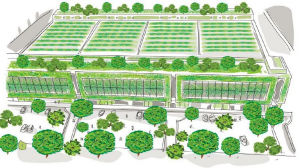
An urban forest behind the scenes: Uforest’s seven steps for greening cities
After discovering the training needs in urban forestry and the socio-environmental challenges of filling cities with trees, Uforest culminates its research with a practical guide that is particularly useful for political decision-makers and municipal government managers.






